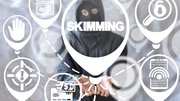News
Kansas considering ATM emergency notification measure
February 5, 2004
TOPEKA, Kan. - A system that summons police when ATM users enter their PIN backward would save lives, proponents of a bill mandating use of the technology say.
But opponents told a Senate committee on Feb. 5 that the technology, developed by Joseph Zingher of Chicago, could put ATM users in greater peril and cost too much to implement.
According to an Associated Press report, Sen. Phil Journey, R-Haysville, testified for the bill, saying people in his Sedgwick County district had been victims of ATM crimes less notorious but as brutal as those committed by Jonathan and Reginald Carr.
The Carr brothers abducted three men and two women from a Wichita townhouse in December 2000, terrorized them for several house and made them withdraw money from ATMs before shooting all five in the head. One person survived.
Eight days earlier, Reginald Carr had abducted a Wichita man and forced him to withdraw money from an ATM, then released him unharmed.
"ATM crimes are not your normal, everyday robbery where the criminal approaches the victim, demands money or property and then leaves upon request," Journey said. "In many cases, the victim is terrorized for an extended period of time far greater than a normal robbery."
Zingher told the committee that crimes could be deterred if robbers feared that victims could use the system. He estimated that establishing the system in Kansas would cost about $10,000.
But Chuck Stones, representing the Kansas Bankers Association, said banks already have methods to ensure safety for ATM users. Moreover, he said, a person being robbed at an ATM could be put in greater danger by hesitating while trying to remember what numbers to punch in.
"I'm not sure anyone here could remember their PIN numbers backward with a gun to their head," he said.
Bank representatives also questioned Zingher's estimate of the installation costs, saying it was too low..
Matt Goddard, representing the Heartland Community Bankers Association, said Zingher had been shopping his system to banks since 1997, but banks weren't interested.
"I don't think it's wise to mandate something that nobody wants," he said.
On Jan. 1, Illinois enacted a law asking ATM providers in the state to include the reverse-PIN safety catch into their terminals. However, Illinois legislators watered down the original language of the law, so that it now provides that terminals "may, rather than must, be designed to send an alarm when a personal identification number is entered in reverse order."
(See related story Ill. bill makes emergency notification system at ATMs an option)
Zingher, a former member of the U.S. Army Military Police, got the idea for his SafetyPIN in 1994, when he needed cash in a bad part of town. He paid $500 to a computer science major to write the simple code that would recognize reversed, inverted or otherwise altered PINs as a distress signal, and instruct the ATM to call the cops. He filed for a patent the same year.
In March 1998, the U.S Patent and Trademark Office awarded Zingher patent number 5,731,575. He spent the last six years shopping the idea to banks in Illinois, as well as Georgia and Florida.
So far, he has found no takers. By his own counting, he spent over $100,000 on patent applications, research studies and marketing to push the software.
According to the AP, IBM last month received a patent for its own "duress PIN" system. IBM, whose patent cites Zingher's invention, says it has no immediate plans to use the technology.
 ChatGPT
ChatGPT Grok
Grok Perplexity
Perplexity Claude
Claude












